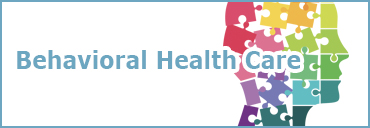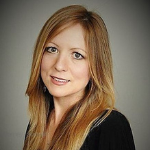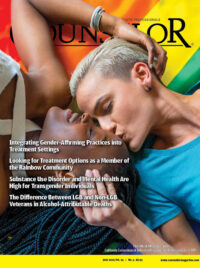Share

Our previous family article described the University of Pittsburgh Medical Center (UPMC) Passavant Hospital Foundation’s Bridge-to-Hope (B2H) family support program, which was expanded to other UPMC community hospitals. This article discusses the value of educating members and also how providers can help families. Additionally, we will discuss members’ involvement in local, state, or national advisory boards or committees, and their many contributions to educational programs sponsored by universities, medical centers, and social service organizations.
Support, Education, and Special Events
B2H family support group sessions provide a forum for members to share their experiences, discuss current concerns and problems related to addiction, gain information, and learn coping skills. They not only learn during meetings, but often help each other between and after sessions. Members often initially attend meetings to help their addicted family members, but then realize their own recovery is the main focus.
Educational presentations by group leaders or guest speakers cover many topics. A few of the most well-received presentations discussed the following:
- Drug overdose prevention with a free naloxone kit to reverse a drug overdose
- The role of medication in recovery from opioid or alcohol addiction
- Self-care and recovery for family members or concerned significant others (CSOs)
- Half-day workshops on multiple topics and small groups led by addiction psychiatrists, psychiatric residents, and addiction therapists
B2H offers special events such as the annual Vigil of Hope. During this event, presentations are given by professionals, and individuals in recovery and other participants light candles and share statements about loved ones lost to addiction. At the end of the program, snacks are provided to allow participants to interact and form meaningful and healing connections in a supportive and loving environment. One such vigil had over 130 participants with nearly one hundred people lighting candles and sharing stories.
At one event a young boy lit a candle and stated, “I light this candle for my dad, who died when I was three.” This courageous boy had a profound impact on many in attendance and was a reminder that children suffer when their parents have an addiction. This boy’s statement conveyed the reality of one of the worst outcomes of addiction: the death of a parent. Losing a parent or both parents through death or incarceration creates trauma that often takes a long time to heal for children.
B2H also hosts holiday gatherings to provide members an opportunity to celebrate the holidays and share an important social event. These are joyous events in which members share their successes and socialize. Those whose addicted family members are sober and in recovery often feel increased gratitude during holidays.
Giving Back
Many B2H members provide support to other members of their groups and to other family members or friends in their communities. B2H members are often included in designing member surveys, conducting conferences, workshops, medical center grand rounds, webinars for professionals or families in need of information and support, and committees or workgroups. Feedback is consistently positive as they learn about the suffering of families as well as their resilience in coping with addiction and its effects. Several members have shared their stories of pain and recovery at state and local conferences as well as other educational functions sponsored by several universities. Some members permitted us to videotape them to share their stories with medical students and non-addiction-professionals to raise awareness of the effects of addiction on families.
B2H members or group leaders contribute to community initiatives including but not limited to a parent advisory council, an overdose committee, a county advisory committee, and a medical center substance use disorders committee. Many members provided presentations or testimony to local, state, or federal legislators, groups, or agencies to advocate for families. B2H also contributed to an HBO special on addiction that eventually won an Emmy award. These activities show many ways in which members give back to others and promote recovery for families harmed by addiction.
How We All Can Help Family Members
Providers in addiction, psychiatric, medical, or social service systems can help family members or CSOs in the following ways (Daley, 2017; Daley & Douaihy, 2019; Gross, Lagos, Yessengaliyeva, LaCasse, & Liepman, 2018; Klosterman & O’Farrell, 2013):
- Provide education on the impact of addiction on families and individual members of the family unit, including children. Awareness of these issues can help staff in providing or facilitating other services that help families
- Ensure that staff are aware of community-based family support programs (e.g., Al-Anon, Nar-Anon) and the potential ways in which these mutual-aid programs help families or CSOs
- Educate patients who have family members or significant others with addiction about treatment resources and how to access them
- Provide written information about family-focused mutual-aid programs and/or how to access them on the Internet
- Provide written, audio, or video information about resources that help families learn about addiction, how to help their loved ones, and/or how to help themselves (see websites listed at end of this article)
- Develop a list of contacts in the community who can provide staff education or support for family members or CSOs affected by their loved ones’ addiction. Many organizations have certified recovery specialists, care managers, and/or other professionals such as nurses, social workers, community workers who can help families find services that benefit them or their loved ones
- Facilitate and/or support the development of new, community-based, education or mutual-aid programs. Many family members affected by their loved ones’ addiction, including the loss of loved ones, have used their grief and experiences to initiate local programs and services to reach other families or CSOs
Family-focused mutual-aid programs are proof that family members and professionals interested in helping others can make a significant difference by organizing and offering nontherapy services to people affected by their loved ones’ addiction. The B2H fellowship provides a safe atmosphere for members to help each other. Members of B2H and other family support groups have provided much positive verbal feedback and written evaluations and are able to state specific ways in which these programs have aided in their recovery. Other surveys of family members provide evidence of the helpfulness of mutual-aid programs (Al-Anon Family Group, 2018; Andersson et al., 2018).
What is impressive is that B2H members advocate for families in many ways beyond group meetings. Our experiences and involvement with families show that family members or CSOs affected by their loved ones’ addiction can make a significant difference by providing education, support, and hope to each other. We all need to focus on reaching more families and CSOs affected by addiction because of the widespread nature of this serious health problem in our country. While the response to the opioid epidemic has led to a significant increase in services to addicted individuals, families are often not included in these. Now is the time for all of us to consider the family perspective and support them.
References
- Al-Anon Family Group. (2018). Al-Anon Family Group Headquarters, Inc. 2018 membership survey: Results and longitudinal comparison. Retrieved from https://al-anon.org/pdf/2018MembershipSurvey.pdf
- Andersson, C., Best, D. Irving, J. Edwards, M., Banks, J., Mama-Rudd, A., & Hamer, R. (2018). Understanding recovery from a family perspective: A survey of life in recovery for families. Retrieved from https://s3.eu-west-2.amazonaws.com/files.alcoholchange.org.uk/ documents/FinalReport_0149.pdf?mtime= 20181128162712&focal=none
- Daley, D. C. (2017). Grief has no expiration date, part II: Coping with the loss of a loved one to addiction. Counselor, 18(5), 24–6.
- Daley, D. C., & Douaihy, A. (2019). A family guide to coping with substance use disorders. New York, NY: Oxford University Press.
- Gross, K. A., Lagos, M. E., Yessengaliyeva, E., LaCasse, M. M., & Liepman, M. R. (2018). Family involvement in addiction, treatment, and recovery. In S. C. Miller, D. A. Fiellin, & R. N. Rosenthal (Eds.), The ASAM principles of addiction medicine (6th ed.) (pp. 1010–26). New York, NY: Wolters Kluwer.
- Klostermann, K., & O’Farrell, T. J. (2013). Treating substance abuse: Partner and family approaches. Social Work in Public Health, 28(3–4), 234–47.
About Me
Theresa Lee, MSCP, is a faculty member at Penn State University Department of Psychology, a private therapist, and has been a group leader for over three years for the UPMC East B2H support group.











 Counselor Magazine is the official publication of the California Association of Addiction Programs and Professionals (CCAPP). Counselor offers online continuing education, article archives, subscription deals, and article submission guidelines. It has been serving the addiction field for more than thirty years.
Counselor Magazine is the official publication of the California Association of Addiction Programs and Professionals (CCAPP). Counselor offers online continuing education, article archives, subscription deals, and article submission guidelines. It has been serving the addiction field for more than thirty years.